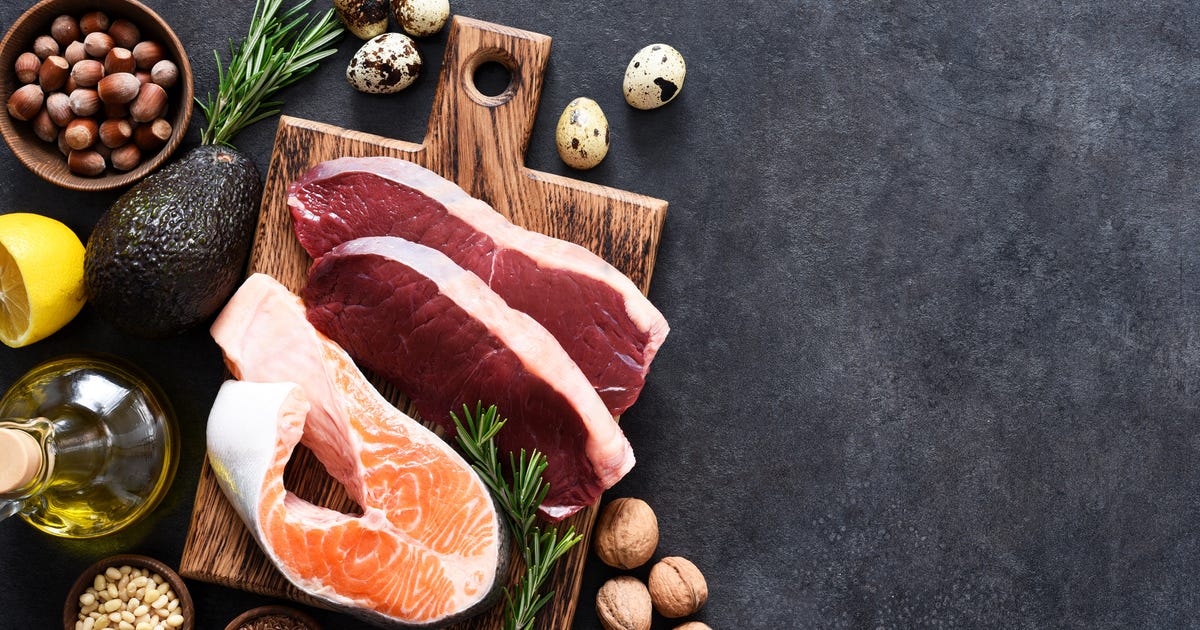
Unlike some other vitamins, vitamin B actually refers to eight different vitamins. You might even know them by other names like folic acid, biotin and riboflavin. You need all eight forms of vitamin B to stay healthy. Because the benefits of vitamin B depend on the type, though, it can be helpful to dig in a little deeper. So let’s do exactly that.
What are vitamin Bs?
There isn’t one singular B vitamin, but actually eight different types. To make things even more complicated, though, you don’t have vitamin B one through eight. Instead, it goes B1 through B3, B5 through B7, B9 and B12. Vitamins B4, B8, B10 and B11 no longer count as vitamins because the human body doesn’t technically need them to survive.
The eight forms of B that meet the technical definition of vitamin (meaning you need it to live) are:
- Vitamin B1 (thiamin)
- Vitamin B2 (riboflavin)
- Vitamin B3 (niacin)
- Vitamin B5 (pantothenic acid)
- Vitamin B6
- Vitamin B7 (biotin)
- Vitamin B9 (folic acid/folate)
- Vitamin B12
Together, these vitamins play a major support role in your body. They help the enzymes in your organs work the way they should, which means they’re involved in everything from processing food to circulating oxygen and nutrients throughout your body.
As a result, people often equate persistent fatigue with low vitamin B and recommend a B vitamin complex for an energy boost.
While taking a B complex, which contains all eight B vitamins, can help you get your recommended daily dose, you might be able to get it from your diet.
Adding vitamin B to your diet
As you’d probably assume, because vitamin B comes in eight forms, you’ll be hard-pressed to find a food that will tick all the boxes. That said, there are some food sources that deliver multiple types of B — and, consequently, many of the benefits of vitamin B.
Some of the best whole-food sources of B vitamins include:
- Salmon (B1, B2, B3, B5, B6, B9, B12)
- Eggs (B1, B2, B3, B5, B7, B12)
- Legumes (B1, B2, B3, B5, B6, B7)
- Nuts (B1, B2, B6, B7)
- Tofu (B1, B2, B6, B9, plus more if you buy fortified firm tofu)
- Whole grains (B1, B3, B5, B6)
Beyond that, if you think you need more of a specific B vitamin — or if a doctor tells you to up your intake — you should dig into that particular form. To help there, we did a roundup of all of the best food sources of different types of vitamin B.
Diet gives you a great place to start when it comes to getting the nutrients you need. But talk to your doctor, too, especially if you’re experiencing persistent fatigue or you eat a vegetarian or vegan diet.
If you have a malabsorption disorder, you are more likely to be deficient in B vitamins. If you are on certain medication, such as Metformin and PPIs (for example, Omeprazole), you may also have a higher risk of a B12 deficiency. If you are affected by either or not getting enough of any of these key nutrients, you can absolutely get benefits from taking a vitamin B supplement.
Science-backed benefits of vitamin B

Getty Images/Tetiana Kreminska/iStock/Getty Images Plus
What are the benefits of taking vitamin B, exactly? If you’ve read this far, you probably already know that it depends on the type of B you’re talking about. To clarify things, and motivate us all to get enough of these essential nutrients, we hit on the benefits of vitamin B by type.
B1: Proper cell function
Vitamin B1, also known as thiamine, plays a big role in powering your cells. Specifically, your body needs it to get energy from nutrients to power cell growth and function. Being B1-deficient is a little like walking around on a nearly drained battery.
B2: Protection
Not only does B2, also known as riboflavin, reduce your risk of certain cancers and other health conditions, but it also helps your body fight aging, inflammation and cell oxidation. To have the line of defense your body needs, make sure you’re getting plenty of riboflavin.
B3: A whole bunch of stuff
Vitamin B3 or niacin does quite a bit in your body, including:
- Nervous system function
- Digestion
- Turning nutrients into energy
- Cholesterol production
B3 deficiency can contribute to everything from headaches and fatigue to hallucinations.
B5: Powers key processes for critical body components
Pantothenic acid, or vitamin B5, helps your body metabolize fat, produce hormones and form red blood cells. In plain terms, this vitamin supports the health of your nervous system and your brain.
B6: Overall health
Without enough vitamin B6, your body has to work overtime to keep your immune and nervous systems healthy. It also supports protein, carbohydrate and fat metabolism.
B7: Healthy hair, skin and nails
You’ve probably already seen supplements with biotin in them. People commonly take more of this in an effort to support nail, hair and skin health. It plays a role in energy storage, too.
B9: Extra important during pregnancy
Your body uses B9 or folic acid to make your genetic material (DNA and RNA, specifically) and support red blood production. Everyone needs it, but this one’s especially important if you’re pregnant. Getting enough B9 directly links to a reduction in birth defects.
B12: Anemia prevention
You need B12 to create healthy red blood cells. B12 also provides your nervous system with what it needs. Many of the best food sources of B12 are meat and fish. If you follow a vegetarian or vegan diet, you may benefit from a supplement.
Drawbacks to vitamin B complex supplements
A lot of the benefits of vitamin B come risk-free. That’s because all eight B vitamins are water-soluble, just like vitamin C. That means that if you take in more than your body needs, it expels it as a waste product.
That said, continually taking too much of these vitamins — usually in the form of a supplement — can result in toxicity. For example, a long-term intake of more than 200 to 500 milligrams of vitamin B6 per day can be associated with neuropathy. A lot of the biggest issues come from too much niacin. Here are some details:
Problems for people with diabetes
B3 (niacin) can have an adverse effect on your blood sugar levels and your insulin functionality. If you have diabetes, you probably know that both of those things mean trouble. Talk with your doctor before adding any form of niacin through supplementation, including a B complex vitamin. Specifically, be on the lookout for nicotinic acid, a synthetic form of niacin.
Larger doses of 1 to 3 grams per day of B3 can also cause problems like:
- Flushing
- Nausea and vomiting
- Brown skin pigmentation
- Headache
- Itchy skin
- Elevated liver enzymes
Should you take vitamin B every day?

Getty Images/Katrin Ray Shumakov/Moment
What are the benefits of vitamin B? Now you know: It depends on the type. On the whole, though, all eight vitamins play essential roles in your body.
But that doesn’t mean everyone needs to be taking a B complex. For starters, most people can get the benefits of vitamin B from food.
Talk with your doctor before adding any B supplements into your rotation. If you’re pregnant or vegetarian or vegan, you might benefit from taking B6 or B12, respectively.
Most people won’t overdose on B vitamins because your body flushes them out. Consistently taking B3 and B6 in excess, though, can cause issues.
If you’re not sure if you should take vitamin B supplements, ask your doctor for a blood test. This can identify any deficiencies so you can learn if you need more B — or if you’d just be wasting your money.
The information contained in this article is for educational and informational purposes only and is not intended as health or medical advice. Always consult a physician or other qualified health provider regarding any questions you may have about a medical condition or health objectives.
